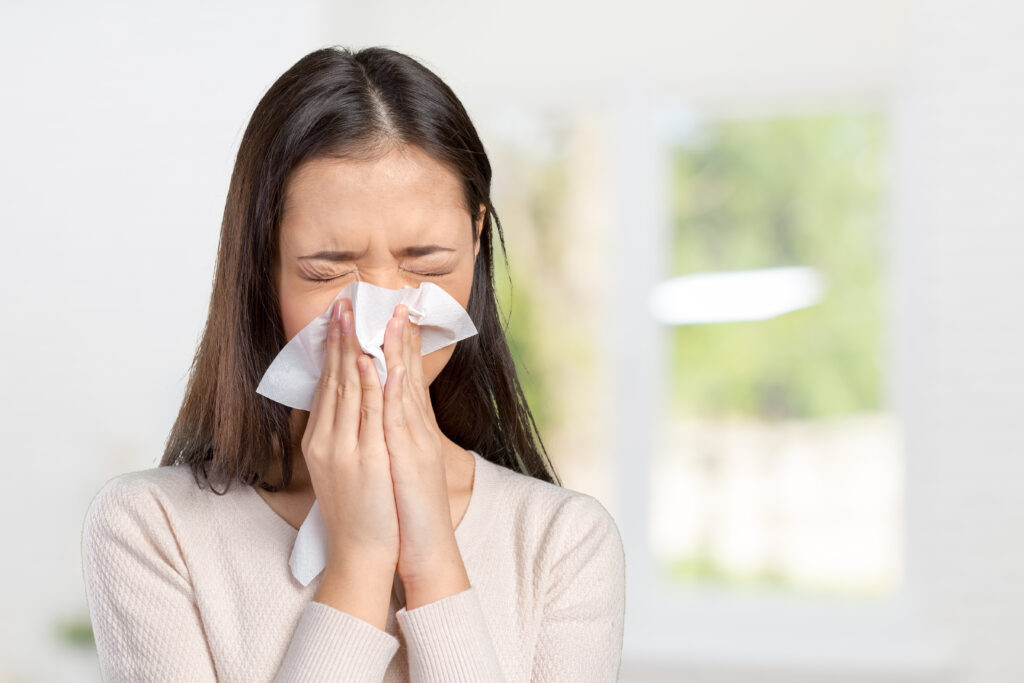Allergic rhinitis, also known as hay fever, is a chronic disease that affects millions of people worldwide. In Singapore, it affects 13.1% of our population. It is an allergic reaction to environmental allergens such as pollen, dust mites, and animal dander. Allergic rhinitis can have a significant impact on a person’s quality of life, affecting their sleep, work productivity, and social activities. In this article, we will explore the symptoms, causes, and treatment options for allergic rhinitis and its association with asthma and eczema.
Symptoms of Allergic Rhinitis
Allergic rhinitis can cause a range of symptoms, including:
- Sneezing
- Runny or stuffy nose
- Itchy eyes, nose, or throat
- Postnasal drip
- Fatigue
- Headache
These symptoms can range from mild to severe, depending on the severity of the allergic reaction.
Causes of Allergic Rhinitis
Allergic rhinitis is caused by an overreaction of the immune system to environmental allergens. When a person with allergic rhinitis comes into contact with an allergen, their immune system releases histamine, which causes inflammation and irritation of the nasal passages and eyes.
Association with Asthma and Eczema
Allergic rhinitis is often associated with other allergic conditions, such as asthma and eczema. Studies have shown that up to 80% of people with asthma also have allergic rhinitis, and up to 50% of people with eczema also have allergic rhinitis.
Asthma is a chronic disease that causes inflammation and narrowing of the airways, leading to difficulty breathing. Allergic rhinitis can trigger asthma symptoms, and both conditions can worsen with exposure to environmental allergens.
Eczema is a chronic skin condition characterized by dry, itchy, and inflamed skin. Allergic rhinitis can exacerbate eczema symptoms, and people with eczema are more likely to develop allergic rhinitis.
Treatment Options
The treatment of allergic rhinitis depends on the severity of the symptoms. Mild cases of allergic rhinitis can often be managed with over-the-counter antihistamines and decongestants. Nasal sprays and eye drops may also be helpful in reducing inflammation and relieving symptoms.
For more severe cases of allergic rhinitis, a doctor may prescribe medications to reduce the overreactivity of the immune system.
Prevention
There are several ways to prevent allergic rhinitis, including:
- Avoiding exposure to known allergens
- Keeping windows and doors closed during high pollen seasons
- Using air purifiers and HEPA filters
- Keeping pets out of the bedroom
- Washing bedding and clothing in hot water to kill dust mites
In conclusion, allergic rhinitis is a chronic disease that can significantly impact a person’s quality of life. It is important to recognize the symptoms of allergic rhinitis and seek medical treatment if necessary. Additionally, managing other allergic conditions such as asthma and eczema can also help improve overall health and well-being. Taking steps to prevent allergic rhinitis through avoidance of allergens and environmental controls can also be beneficial. With proper management and care, people with allergic rhinitis can lead healthy and fulfilling lives.

